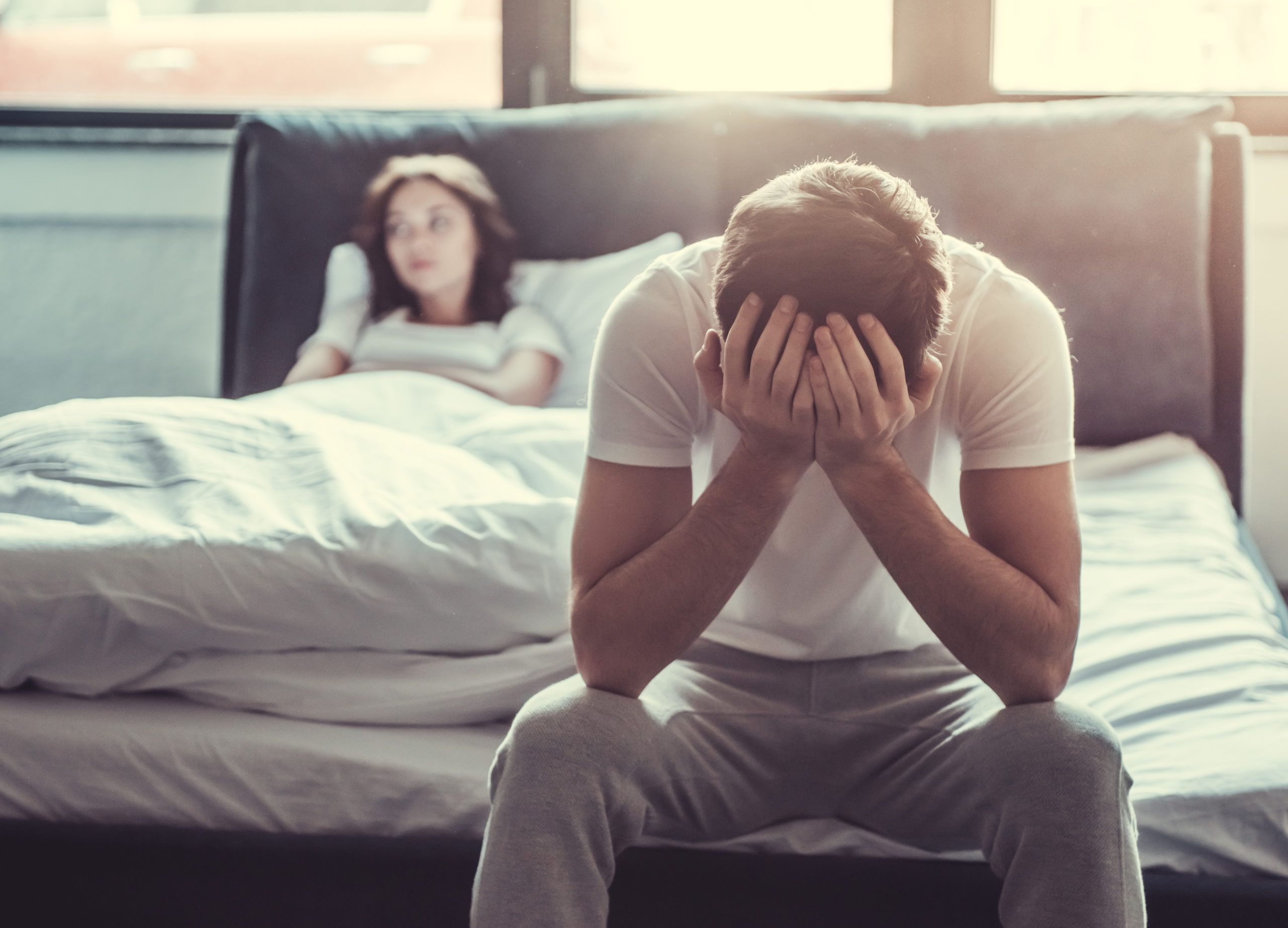Get your ticket to DUTCH Fest 2026! Join us March 12-14 in Dallas, TX for cutting-edge hormone education and hands-on learning. Learn more and register today.*
*DUTCH Fest is exclusive to registered DUTCH Providers. Only registered DUTCH Providers can attend.
The Sex and Stress Connection
Jaclyn Smeaton, ND
The Sex and Stress Connection
by Jaclyn Smeaton, ND
Stress is natural and normal part of life—but when it becomes chronic, it can have a major impact on your overall well-being, including your sexual health. Stress can affect your libido, arousal, and orgasm, and can even lead to sexual dysfunction.
Stress affects the sexual health of both men and women. One study found that chronic stress is associated with decreased sexual desire and satisfaction in women [1]. Another study in women showed that high stress (and higher cortisol) was associated with lower levels of genital arousal, even with no change to psychological arousal [2]. In men, one study found that men with high levels of stress reported lower levels of sexual desire and satisfaction, as well as difficulty achieving and maintaining an erection [3].

Ties between Sex and Stress
One way that stress can impact your sexual health is by decreasing libido, or desire for sex. The physiology of libido and sex drive is complex, especially for women.
In times of stress, your body releases the hormone cortisol. When men and women are exposed to a chronic stress environment, cortisol levels will also rise. This elevation in cortisol can result in decreases in testosterone in both men and women, which can negatively impact libido.
HPA axis dysfunction can also impact estrogen and progesterone secretion in women, along with thyroid hormone production—another hormone associated with sex drive. Additionally, men under stress may secrete prolactin, which is associated with erectile dysfunction.
An interesting study examined the relationship between diurnal cortisol and sexual function in men post-prostate cancer treatment. The study found that better sexual functioning was strongly associated with a healthy cortisol awakening response. Additionally, a steeper-dropping slope in the diurnal pattern of salivary cortisol was associated with a higher frequency of sexual bother, a research term describing one’s self-defined difficulty with sexual function [4].
Other effects of stress
Stress can also affect our ability to become aroused and have an orgasm. When you are stressed, your body is in a state of “fight or flight” which can make it difficult to relax and fully enjoy sexual activity.
In addition to physical effects, stress can also have psychological effects on your sexual health. Stress can lead to anxiety, which can make it difficult to focus on pleasure and can lead to performance anxiety.
Stress can also lead to feelings of depression, which can decrease your desire for sex and make it more difficult to experience pleasure.
There is research on the impact of stress-reducing interventions on sexual health. For example, one study found that mindfulness-based stress reduction (MBSR) improved sexual function in women with sexual dysfunction related to stress. Another study found that cognitive-behavioral therapy (CBT) was effective in reducing stress and improving sexual functioning in men with premature ejaculation.
Managing stress for a better sex life
Stress doesn’t have to dictate your health and sexual wellness. Here are a few tips for managing stress and improving your sexual health:
- Practice stress-reducing activities. This could include activities like meditation, yoga, or exercise. These activities can help to lower cortisol levels and increase feelings of relaxation.
- Communicate with your partner. It’s important to have open and honest communication with your partner about your stress and how it’s impacting your sex life. Together, you can work on finding ways to reduce stress and increase intimacy.
- Seek help if needed. If stress is causing serious issues with your sexual health, it may be helpful to seek the help of a therapist or healthcare provider. They can offer support and guidance on managing stress and improving your sexual health.
References
- Ter Kuile MM, Vigeveno D, Laan E. Preliminary evidence that acute and chronic daily psychological stress affect sexual arousal in sexually functional women. Behav Res Ther. 2007 Sep;45(9):2078-89. doi: 10.1016/j.brat.2007.03.006. Epub 2007 Mar 19. PMID: 17481578.
- Hamilton LD, Meston CM. Chronic stress and sexual function in women. J Sex Med. 2013 Oct;10(10):2443-54. doi: 10.1111/jsm.12249. Epub 2013 Jul 10. PMID: 23841462; PMCID: PMC4199300.
- Fiala L, Lenz J, Sajdlova R. Effect of increased prolactin and psychosocial stress on erectile function. Andrologia. 2021 May;53(4):e14009. doi: 10.1111/and.14009. Epub 2021 Feb 17. PMID: 33595132.
- Hoyt MA, Gaffey AE, Wang AW, Litwin MS, Lawsin CJ. Sexual well-being and diurnal cortisol after prostate cancer treatment. J Health Psychol. 2020 Sep;25(10-11):1796-1801. doi: 10.1177/1359105318772655. Epub 2018 Apr 26. PMID: 29696999; PMCID: PMC6309533.
TAGS
Women's Health
Men's Health
Stress
Libido
Amenorrhea